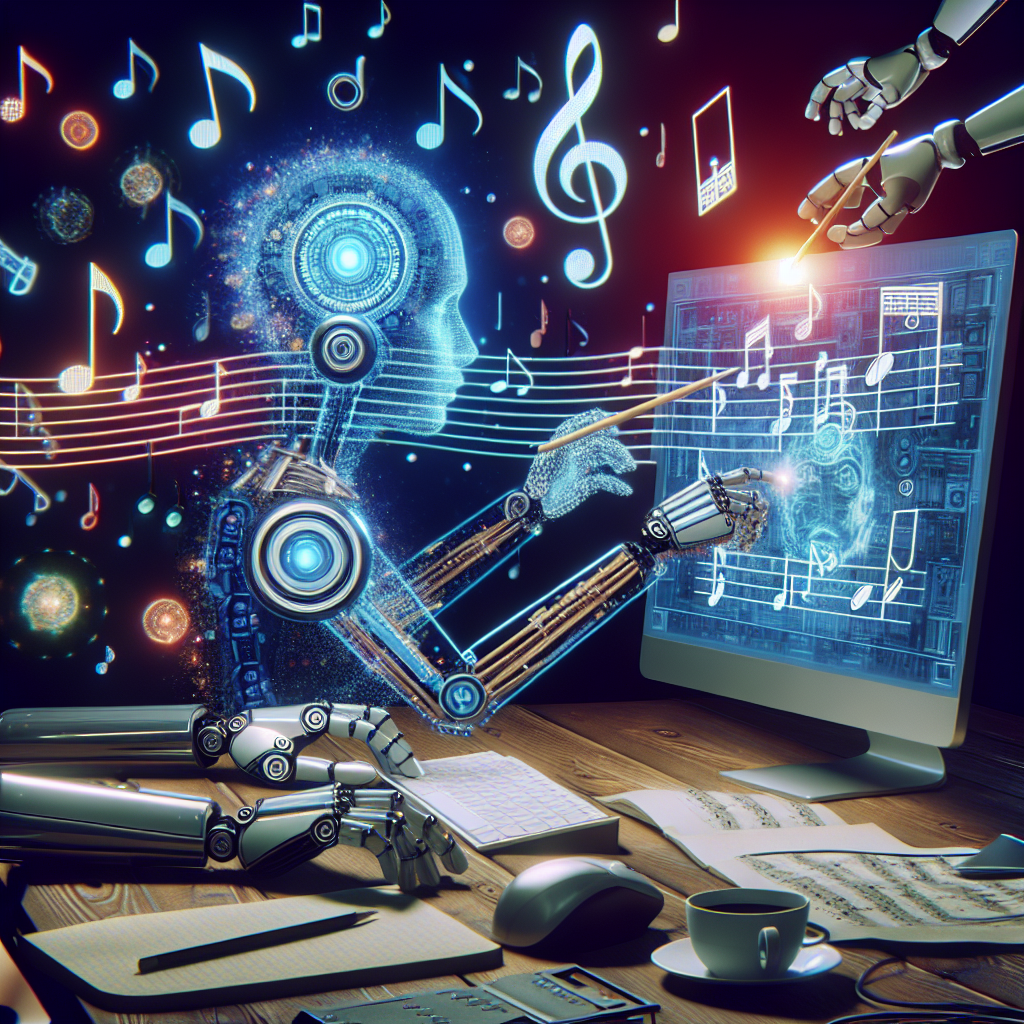Artificial Intelligence (AI) has been making waves in the music industry, particularly in the realm of music composition. AI software is revolutionizing the way musicians create music, offering new tools and techniques that were previously unimaginable. In this article, we will explore how AI software is enhancing music composition, the benefits it brings to musicians, and the future of AI in the music industry.
AI software has the ability to analyze vast amounts of data and learn patterns and structures within music. This allows AI to generate original compositions, suggest chord progressions, melodies, and harmonies, and even mimic the style of famous composers. With the help of AI, musicians can explore new creative possibilities and push the boundaries of traditional music composition.
One of the key ways in which AI software is enhancing music composition is through the generation of original music. AI algorithms can analyze existing music libraries, identify common patterns, and use this information to create new compositions. This can be particularly useful for musicians who may be struggling with writer’s block or looking for fresh inspiration. AI-generated music can serve as a starting point for further exploration and development, sparking new ideas and pushing musicians out of their comfort zones.
Additionally, AI software can assist musicians in the composition process by suggesting chord progressions, melodies, and harmonies. This can help musicians overcome creative blocks and find new directions for their music. AI algorithms can analyze the structure and tonality of a piece of music and provide suggestions for how to develop it further. This can be particularly useful for musicians who may be looking to experiment with different styles or genres.
Furthermore, AI software can help musicians refine their compositions by providing feedback and suggestions for improvement. AI algorithms can analyze a piece of music and identify areas where it could be enhanced, such as adding dynamics, changing the tempo, or adjusting the instrumentation. This feedback can help musicians fine-tune their compositions and elevate them to the next level.
Another way in which AI software is enhancing music composition is through the creation of personalized music. AI algorithms can analyze an individual’s musical preferences, styles, and influences and use this information to generate music that is tailored to their tastes. This can be particularly useful for musicians who are looking to create music that resonates with a specific audience or reflects their unique artistic vision.
In addition to enhancing music composition, AI software is also changing the way musicians collaborate and interact with each other. AI algorithms can facilitate real-time collaboration between musicians, allowing them to work together on a piece of music regardless of their physical location. This can open up new possibilities for collaboration and creativity, enabling musicians to connect with others who share their musical interests and influences.
Overall, AI software is revolutionizing the music industry and offering new opportunities for musicians to explore their creativity and push the boundaries of traditional music composition. By leveraging AI technology, musicians can enhance their compositions, explore new creative possibilities, and connect with others in ways that were previously unimaginable.
FAQs:
Q: Can AI software replace human composers?
A: While AI software is capable of generating original compositions and assisting musicians in the composition process, it is unlikely to replace human composers entirely. AI lacks the emotional intelligence and creative intuition that human composers bring to their music. AI software is best used as a tool to enhance and augment human creativity, rather than replace it.
Q: How can musicians benefit from using AI software in their music composition?
A: Musicians can benefit from using AI software in a variety of ways, including generating original compositions, exploring new creative possibilities, receiving feedback and suggestions for improvement, and collaborating with other musicians. AI software can help musicians overcome creative blocks, find new directions for their music, and connect with others who share their musical interests.
Q: What are some examples of AI software that is enhancing music composition?
A: Some examples of AI software that is enhancing music composition include Amper Music, AIVA, and OpenAI’s MuseNet. These platforms use AI algorithms to generate original compositions, suggest chord progressions and melodies, and provide feedback and suggestions for improvement. Musicians can use these tools to explore new creative possibilities and enhance their compositions.
In conclusion, AI software is revolutionizing the way musicians create music and offering new tools and techniques that were previously unimaginable. By leveraging AI technology, musicians can enhance their compositions, explore new creative possibilities, and connect with others in ways that were previously impossible. The future of AI in the music industry is bright, and we can expect to see even more innovation and creativity in the years to come.

